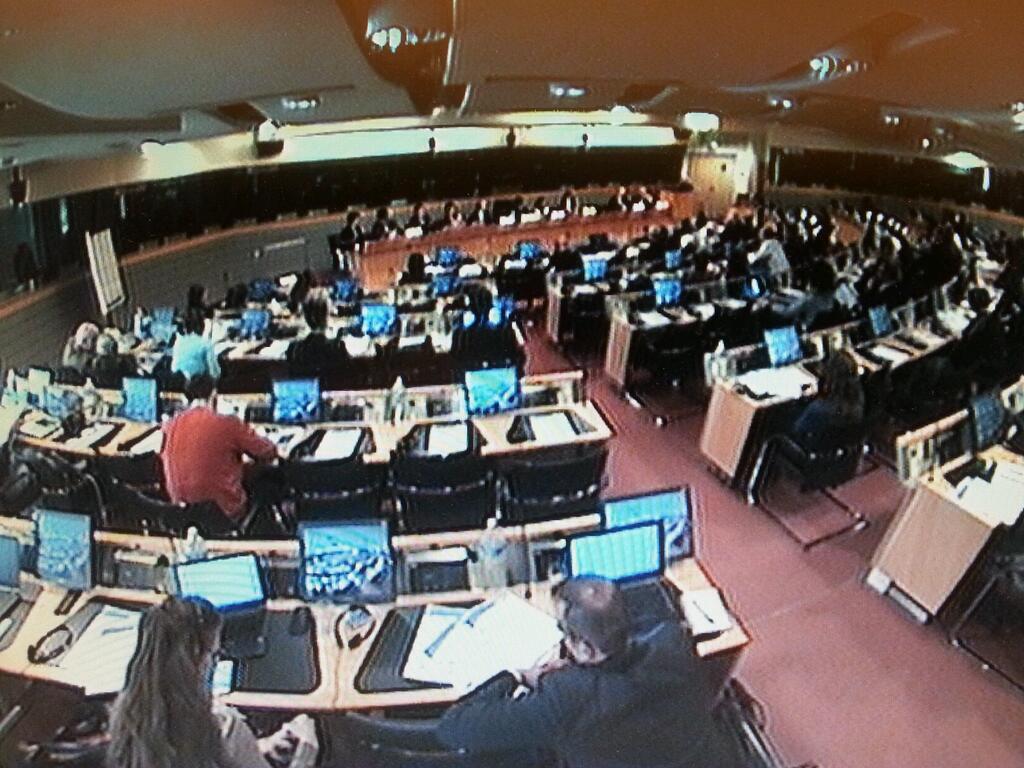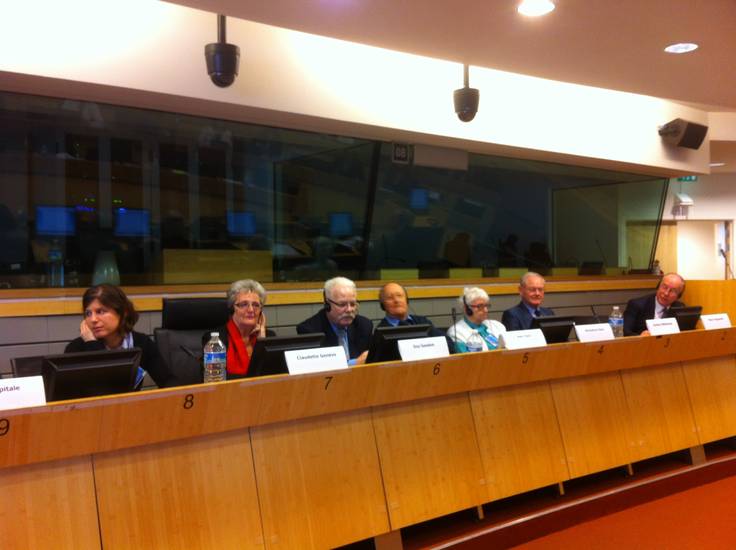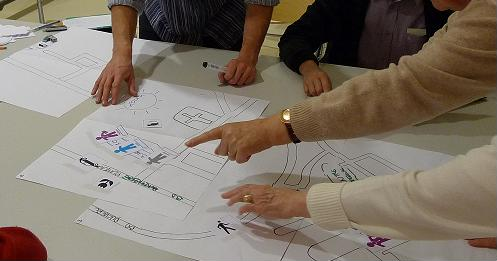Programme et déroulé
Le 6 Mars dernier s’est tenue à Bruxelles au comité des régions de l’UE la session de restitution publique du projet HOST coordonné par l’OPAC du Rhône sur le thème de l’autonomie des seniors en logement social.
Cette restitution a été l’occasion pour Erasme de présenter le travail conduit depuis 3 ans sur le co-design avec les utilisateurs et le développement itératif de l’application HOST-communication, réseau social de proximité opensource (alias Webnapperon2).
Les partenaires européens (français, anglais, italien, espagnol) impliqués dans le projet sur les mêmes thématiques ont pû échanger sur les productions techniques et méthodologiques au cours des tables rondes, des sessions de démonstrations et des interventions croisées des coordinateurs européens du logement social, de l’accompagnement du vieillissement et du financement des politiques publiques (CECODHAS, AGE, AFE-INOVNET).
Voir le programme complet en ligne : http://www.housingeurope.eu/www.housingeurope.eu/uploads/file_/Host_conference_programme_online.pdf
Le témoignage des seniors expérimentateurs a été l’un des moments fort de la session, laissant entrevoir la diversité des usages conduits et émergents, et la polyvalence des compétences déployées par les partenaires :
- mise à disposition d’une infrastructure et de matériel interactif aux utilisateurs seniors en logement social
- co-design avec les utilisateurs et les acteurs locaux
- développement des applications et d’offres de service autour de la communication et de l’organisation
- animation, support, création de contenus et émergence de communautés locales
Vous retrouverez ci-dessous les grandes lignes de l’intervention que j’ai faite en table ronde. Cet article sera bientôt complété des vidéos de démonstration des applications ainsi qu’une analyse des interactions développées dans notre application.
L’évaluation du projet ainsi que des perspectives de développements sont en cours de finalisation et bientôt disponibles sur le site du projet.
Roundtable : Codesign lessons and conditions of success
a) Please tell us briefly what for you was the strongest point of the method you used to evaluate the needs of the seniors ?
Erasme :
In France co-design workshops has taken the form of local community building alternating real life meetings and online creation.
They were conducted by a facilitator with 15 co-designers, that have showed during the year of work a responsibility toward their “mission” and a sense of pleasure, which are the first success factors we have to point out.
During this conception time, the key point of the methodology is to have used serious games and transposition exercises without any technology, suggesting elderly resident to be experts of the daily life.
You will see on the pictures a tree of needs and expectations build from testimony and contextual interviews, storytelling about sentimental and practical objects, everyday pleasure/habits and difficulties. And some first service ideas coming from the link between expectations from some to capacities from other (for sharing, shopping, transportation...).
Concrete construction like desktop walkthrough game, involves small scale 3D model of the city with figures to placed on it and enables collaborative work and a meta representation of the geography and the time.
But the most difficult part is probably to imagine services that doesn’t exist for which we employed tangible brainstorming and roleplay.
The story of one sequence is eloquent : we originally asked people to imagine ideas for connected objects that could talk, for example to read their last phone messages or read news. The collective answer was it was pointless because objects couldn’t talk. So we came at the next session with a prototype of interactive table made with sensors, speaker and NFC objects and we played with effective talking objects to help everybody to make a step aside, and invented a prescription reminder.
Global methodology is inspired by these sequence : learning to think not exclusively through constraints, and build ideas between experience, means and collective imagination.
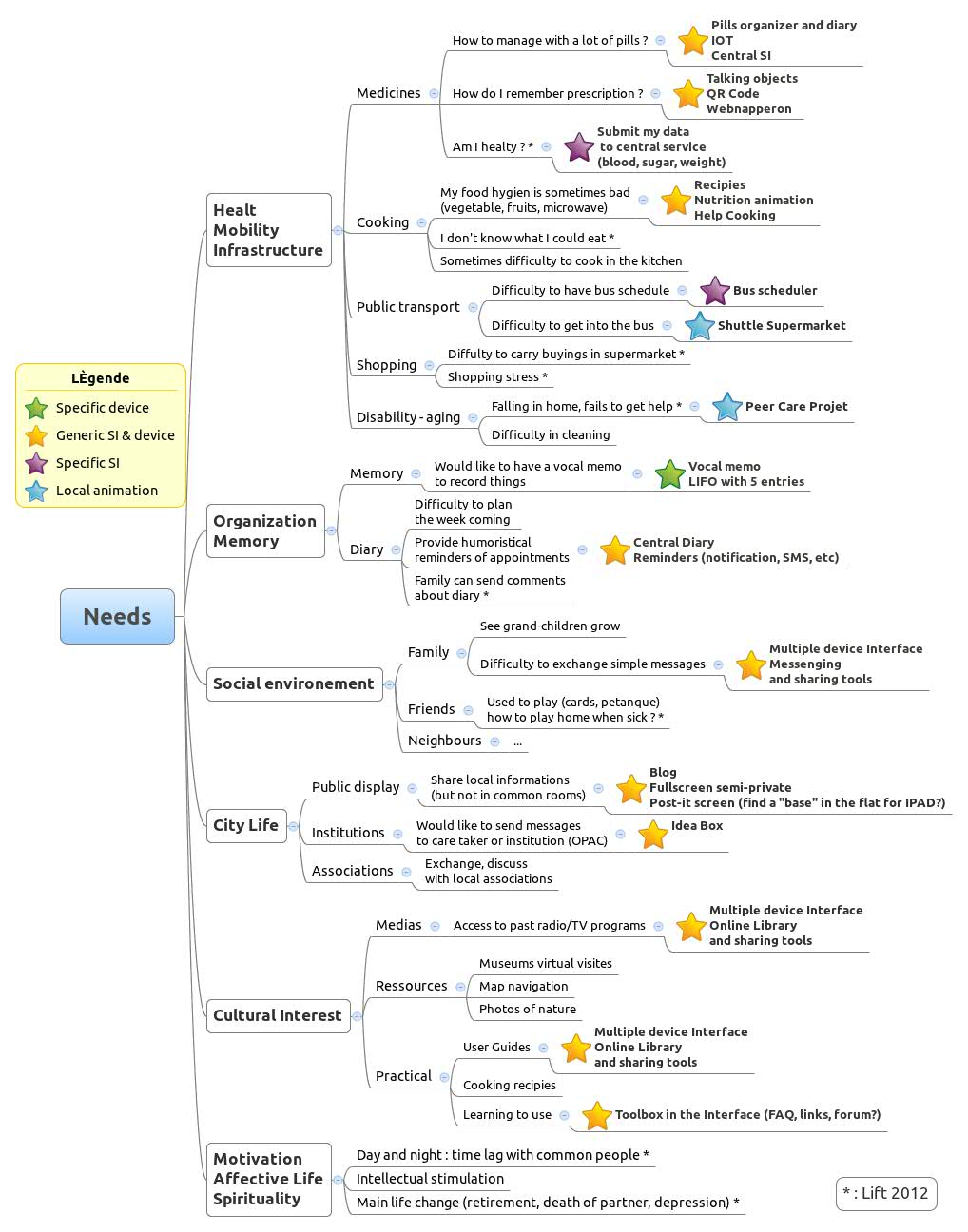
- Tree of needs and expectation (Co-design - Erasme)
b) if you had to work again on this phase, what would you like to change ?
Erasme :
We would try to extend the field of co-designers involved in the research process especially by inviting earlier the local actors : resident administrators, local shoppers, professionals (doctors, nutritionists, photographs, artists, school keepers...).
That could help us to imagine a wider area of services in which they would be ressources and partners of local projects for example and sollicitate them on the condition of success and business model of it.
Restricting the service to the first circle of support of the elderly people would probably be an issue as long as the objective remains to include them actively in the city life and the enhancement process of their environment (home enhancement with institutional, nutrition, literacy program, augmented library…).
c) what was the major finding for you in this project / study ?
Erasme :
The main lesson of the co-design process is at the same time the diversity and the self-sustaining capacity of the dynamics engaged by each local activity if every user find its place, follow a learning curve and lives a collective adventure.
Diversity concerns practical needs, thematic interest and especially ways and rhythms of social interaction. Some people like to read, some other to comment, contribute to collaborative reflexion or aims to be in action with picture taking, some people are pivot in the information dispatching with a capacity of moving slowly between these postures.
We have to insist on the conditions of this balance made from institutional impulsion & thematic facilitation, the anchor with real life and meetings and the confidence and security provided by institution like social houser.
These lessons helped to provide services, tools and ergonomic projection around organisation and memory, communication and social link, local thematic projects building.
A concrete application of these learning is the design of the for Host-communication application coming with an activity toolkit which is a peer local social network and modular application in which each person is represented by a face (even if institutional) and has a various ways of building its library and interacting : reading, sending messages, co-creating contents, sharing, commenting, using objects as shortcuts. You can see behind the interaction map of this horizontal platform.
Each person is part of the network with an active posture and at the same time has a peer care induced activity (everybody takes care from each other) which has a great value I think for the social/residencial welfare and medical part.
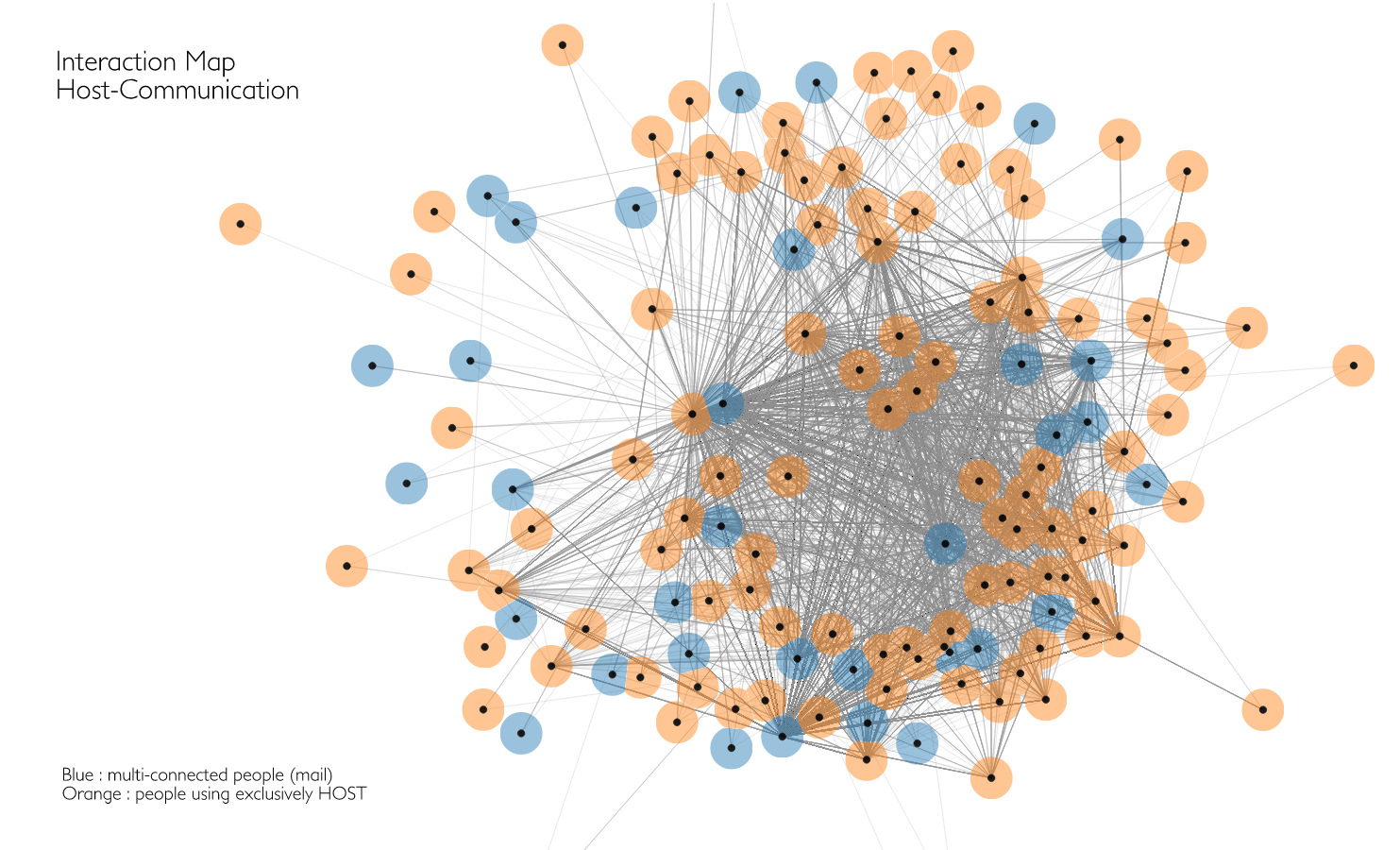
- HOST-Communication Interactions (Erasme)



